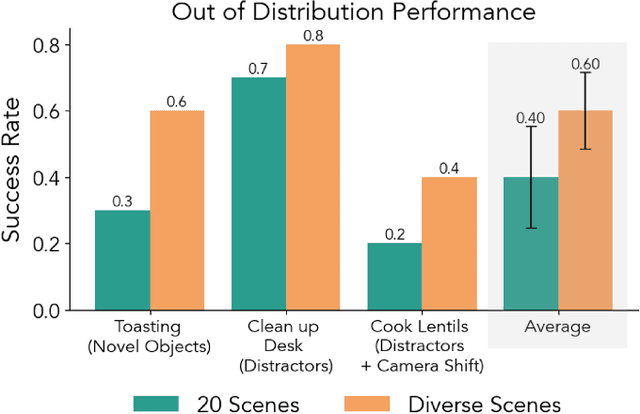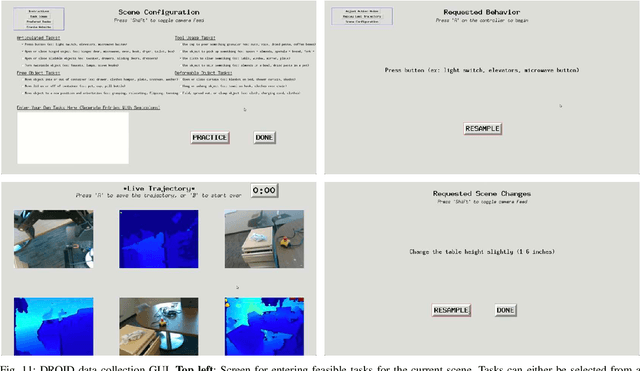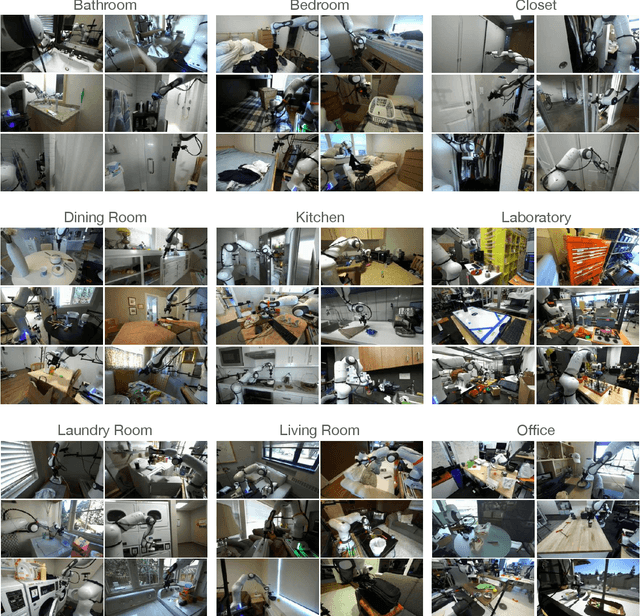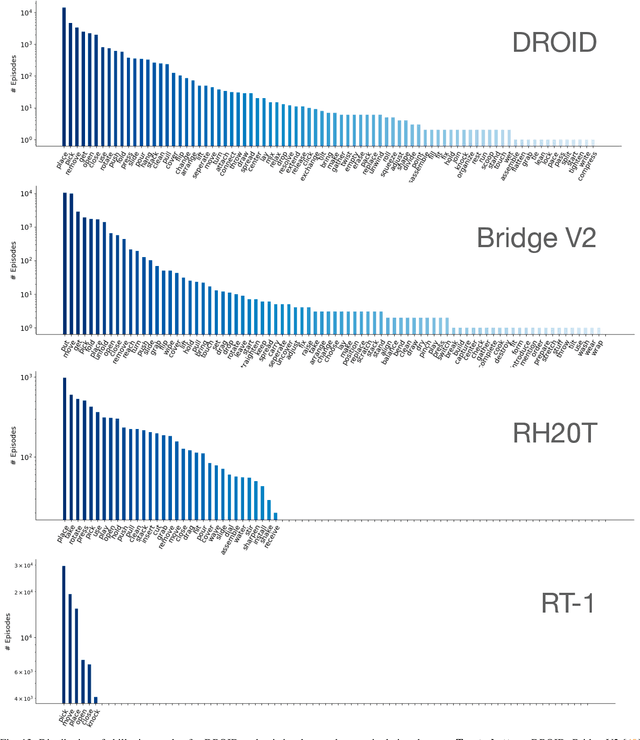Peter David Fagan
Toward a Physical Theory of Intelligence
Dec 22, 2025Abstract:We present a physical theory of intelligence grounded in irreversible information processing in systems constrained by conservation laws. An intelligent system is modelled as a coupled agent-environment process whose evolution transforms information into goal-directed work. To connect information to physical state, we introduce the Conservation-Congruent Encoding (CCE) framework, in which encodings correspond to metastable basins of attraction whose separability is enforced by conservation laws. Within this framework, intelligence is defined as the amount of goal-directed work produced per nat of irreversibly processed information. From this definition we derive a hierarchy of physical constraints governing information intake, irreversible computation, and work extraction in open systems. The framework reveals how long-horizon efficiency requires the preservation of internal informational structure, giving rise to self-modelling, and it establishes that physically embodied intelligent systems possess intrinsic epistemic limits analogous to incompleteness phenomena. Applying the theory to biological systems, we analyse how oscillatory and near-critical dynamics optimise the trade-off between information preservation, dissipation, and useful work, placing the brain near an efficient operating regime predicted by the framework. At the architectural level, we develop a theory of continuous dynamical circuits in which classical Boolean logic emerges as a special case of attractor selection, while more general invariant geometries support computational modes beyond fixed-point logic. Finally, we propose a physically grounded perspective on artificial intelligence safety based on irreversible information flow and structural homeostasis. Together, these results provide a unified, substrate-neutral account of intelligence as a physical phenomenon.
Keyed Chaotic Masking: A Functional Privacy Framework for Neural Inference
May 30, 2025Abstract:This work introduces a lightweight framework for privacy-preserving neural network inference based on keyed chaotic masking a deterministic, user-specific obfuscation method derived from cryptographically seeded chaotic dynamical systems. The approach applies masks to input and output tensors using key-conditioned graph dynamics, enabling authenticated inference, user attribution, and soft output watermarking without modifying model architectures. While the underlying chaotic system used to generate each mask is not analytically invertible, the masking operation itself is algebraically reversible by authorized key holders, offering functional privacy without formal cryptographic guarantees. Unlike traditional encryption or secure multi-party computation, this method operates in continuous space and imposes minimal computational overhead. We describe the construction of the masking system, including graph sampling, dynamical rule selection, and chaos diagnostics. Applications include privacy-preserving inference, secure data contribution, and per-user watermarking in shared model pipelines. This framework offers a practical and modular building block for user-controlled privacy in modern AI systems.
Keyed Chaotic Tensor Transformations for Secure And Attributable Neural Inference
May 29, 2025Abstract:This work introduces a novel framework for secure and privacy-preserving neural network inference based on keyed chaotic dynamical transformations. The proposed method applies a deterministic, cryptographically seeded chaotic system to tensors, producing non-invertible, user-specific transformations that enable authenticated inference, tensor-level watermarking, and data attribution. This framework offers a scalable and lightweight alternative to conventional cryptographic techniques, and establishes a new direction for tensor-level security in AI systems.
Learning from Demonstration with Implicit Nonlinear Dynamics Models
Sep 27, 2024Abstract:Learning from Demonstration (LfD) is a useful paradigm for training policies that solve tasks involving complex motions. In practice, the successful application of LfD requires overcoming error accumulation during policy execution, i.e. the problem of drift due to errors compounding over time and the consequent out-of-distribution behaviours. Existing works seek to address this problem through scaling data collection, correcting policy errors with a human-in-the-loop, temporally ensembling policy predictions or through learning the parameters of a dynamical system model. In this work, we propose and validate an alternative approach to overcoming this issue. Inspired by reservoir computing, we develop a novel neural network layer that includes a fixed nonlinear dynamical system with tunable dynamical properties. We validate the efficacy of our neural network layer on the task of reproducing human handwriting motions using the LASA Human Handwriting Dataset. Through empirical experiments we demonstrate that incorporating our layer into existing neural network architectures addresses the issue of compounding errors in LfD. Furthermore, we perform a comparative evaluation against existing approaches including a temporal ensemble of policy predictions and an Echo State Networks (ESNs) implementation. We find that our approach yields greater policy precision and robustness on the handwriting task while also generalising to multiple dynamics regimes and maintaining competitive latency scores.
SECURE: Semantics-aware Embodied Conversation under Unawareness for Lifelong Robot Learning
Sep 26, 2024



Abstract:This paper addresses a challenging interactive task learning scenario we call rearrangement under unawareness: to manipulate a rigid-body environment in a context where the robot is unaware of a concept that's key to solving the instructed task. We propose SECURE, an interactive task learning framework designed to solve such problems by fixing a deficient domain model using embodied conversation. Through dialogue, the robot discovers and then learns to exploit unforeseen possibilities. Using SECURE, the robot not only learns from the user's corrective feedback when it makes a mistake, but it also learns to make strategic dialogue decisions for revealing useful evidence about novel concepts for solving the instructed task. Together, these abilities allow the robot to generalise to subsequent tasks using newly acquired knowledge. We demonstrate that a robot that is semantics-aware -- that is, it exploits the logical consequences of both sentence and discourse semantics in the learning and inference process -- learns to solve rearrangement under unawareness more effectively than a robot that lacks such capabilities.
DROID: A Large-Scale In-The-Wild Robot Manipulation Dataset
Mar 19, 2024



Abstract:The creation of large, diverse, high-quality robot manipulation datasets is an important stepping stone on the path toward more capable and robust robotic manipulation policies. However, creating such datasets is challenging: collecting robot manipulation data in diverse environments poses logistical and safety challenges and requires substantial investments in hardware and human labour. As a result, even the most general robot manipulation policies today are mostly trained on data collected in a small number of environments with limited scene and task diversity. In this work, we introduce DROID (Distributed Robot Interaction Dataset), a diverse robot manipulation dataset with 76k demonstration trajectories or 350 hours of interaction data, collected across 564 scenes and 84 tasks by 50 data collectors in North America, Asia, and Europe over the course of 12 months. We demonstrate that training with DROID leads to policies with higher performance and improved generalization ability. We open source the full dataset, policy learning code, and a detailed guide for reproducing our robot hardware setup.
 Add to Chrome
Add to Chrome Add to Firefox
Add to Firefox Add to Edge
Add to Edge